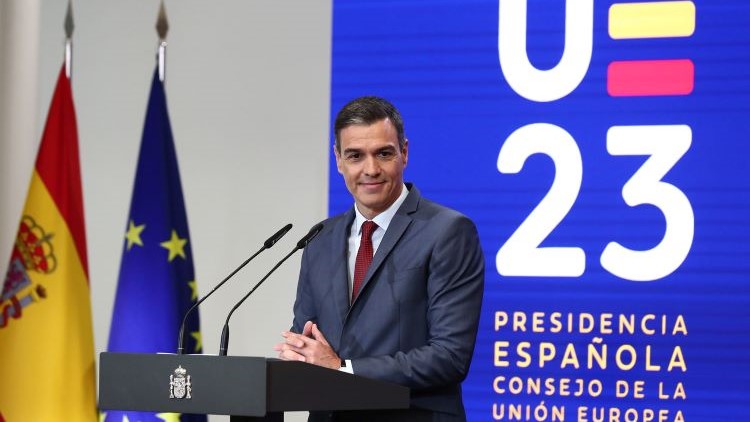The Diplomat
The Spanish Presidency of the Council of the EU has already completed half of its mandate, in which, according to what the Spanish Government in office itself assured yesterday, “the impulse of the regulation to strengthen the European semiconductor ecosystem, the adoption of the directive on energy efficiency and the renewal and extension of sanctions against Russia for the invasion of Ukraine” stood out.
“Since the beginning of the Spanish semester last July 1, the Council of the European Union has ratified more than twenty legislative acts between regulations, directives, decisions, common positions and interim agreements of different types”, stated yesterday the Spanish Presidency a press release.
Likewise, the note continues, during this first quarter, “the Spanish Presidency has promoted and encouraged debates on different issues related to the present and future of the Union, from the need to build the Open Strategic Autonomy or the European Health Union, to the importance of promoting a Community agreement on teleworking or drawing up rules that guarantee greater accessibility to Justice”.
All this has taken place in the midst of an early general election, with an acting government, after a first failed investiture session by the leader of the PP, Alberto Núñez Feijóo, and awaiting another investiture session in which the current acting president, Pedro Sánchez, will try to continue governing. If it does not succeed, new elections would be held in January 2014. Therefore, the only certainty is that, in the end, the Spanish Presidency will fall entirely on the current coalition Executive, even if it is in office.
Informal ministerial meetings and summits
During these three months, Spain has hosted up to fifteen informal ministerial meetings of the European Union, the last of which took place last Friday with the meeting of the General Affairs and Cohesion Policy Council held in Murcia. In the second half of the Council Presidency, Spain will host another six informal ministerial meetings, as well as the third summit of the European Political Community (EPC) and the informal meeting of the EU Heads of State or Government in Granada, both this week.
These two events will be in addition to the other major milestone of the Spanish Presidency: the EU-CELAC Summit of Heads of State and Government, held in Brussels on July 17 and 18, which was the first meeting between the two parties in eight years and concluded with the adoption of a joint declaration.
Among the issues addressed at the ministerial meetings was the ecological transition, one of the priorities of the Spanish Presidency. For example, at the informal fisheries ministerial meeting in Vigo, the EU-27 committed themselves to making progress on a strategy for the decarbonization of the fisheries and aquaculture sector, which culminated, days later, in the adoption of a new regulation to reduce the carbon footprint of these industries. In addition, the Council also approved a regulation on alternative fuel infrastructures to increase charging stations for electric vehicles, as well as an energy efficiency directive, which includes rules to reduce final energy consumption in the EU by at least 11.7% by 2030.
Russian invasion
On the geopolitical level, the Russian invasion of Ukraine was one of the main topics of discussion of the European ministers, especially in the informal meetings of Defense and Foreign Affairs (Gymnich) organized in Toledo, “which served to reaffirm the European commitment to long-term military support for Ukraine and, at the same time, to promote the unity of the Member States”, stated the Spanish Presidency.
In this regard, the Council extended until January 31 next year the sanctions against Moscow, while approving new restrictions against individuals and entities for providing support to the Russian aggression on Ukraine. In addition, the second half of the Presidency began yesterday with an unexpected meeting of European Union foreign ministers in Kyiv, a particularly unusual meeting because it was held in a non-EU country at war.
On the other hand, the socio-economic challenges of the present marked the two days of the informal Economic and Financial Affairs (Ecofin) meeting in Santiago de Compostela, which culminated in a commitment by the EU-27 to strengthen the economic security of the Union and the coordination of fiscal and monetary policies.
In addition, in recent months, the Council approved the so-called ‘chip regulation’, which aims to create the conditions for the development of a European industrial base in the field of semiconductors, and also authorized the European Commission to enter into negotiations with the United States on an agreement to strengthen the supply chains of key minerals for European industry.
Informal ministerial meetings held in Spain also led to the adoption of two declarations on transport and culture: the Barcelona Declaration to promote accessible, affordable and equitable mobility and foster social and territorial cohesion; and the Cáceres Declaration, which elevates culture to the status of an essential public good.







